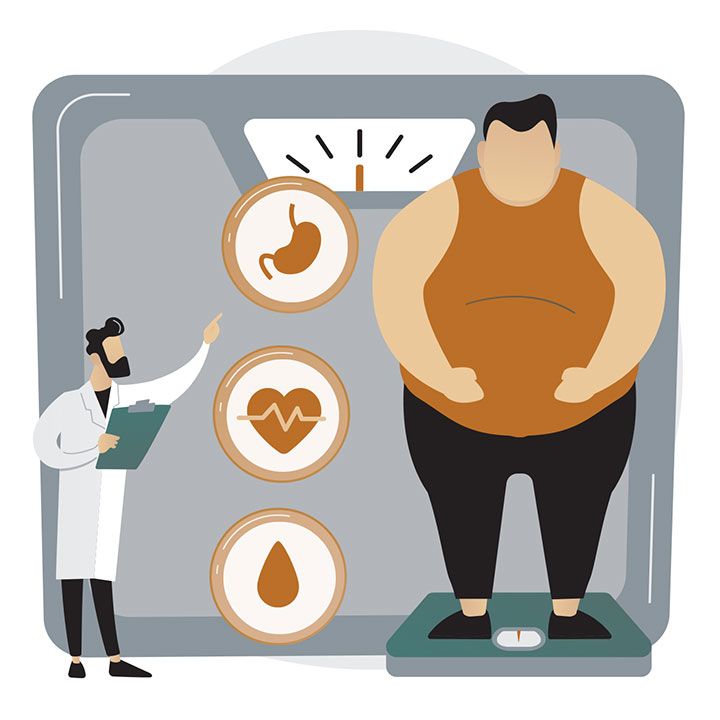
Medicine Cabinet
By Teodoro B. Padilla

The first week of September marks Obesity Prevention Awareness Week, a timely reminder of a growing health emergency that cuts across health, productivity, and social well-being. In the Philippines, nearly 40% of adults and close to 10% of children are overweight or obese, levels considered high by global standards. Left unaddressed, these numbers translate into millions of Filipinos facing higher risks of diabetes, heart disease, liver disease, and even cancer, conditions that take lives too soon and drain household incomes and public resources.
Obesity is not merely a lifestyle issue. It is now recognized worldwide as a chronic non-communicable disease (NCD), shaped by complex biological, social, and environmental factors. For families, this means more than medical costs. It means reduced productivity at work, lower quality of life, and intergenerational effects as children adopt unhealthy eating and activity patterns from an early age.
To confront this challenge, the National Nutrition Council (NNC), with support from the World Health Organization (WHO), developed the Philippine Strategic Plan in Addressing Obesity and Other Metabolic Disorders 2024–2028. This roadmap outlines measures to make healthy choices the easier choices: regulating food environments in schools, creating safe community spaces for physical activity, expanding access to nutritious food for vulnerable groups, and strengthening data and monitoring systems. Importantly, the plan ties into broader national goals, including the Philippine Development Plan and AmBisyon Natin 2040, which envision a healthier, more prosperous population.
The urgency of these reforms was underscored during the World Obesity Day Philippine Forum in March 2025, which brought together experts, policymakers, and advocates. The event highlighted how cross-sector collaboration, among government agencies, UNICEF Philippines, Department of Science and Technology – Food and Nutrition Research Institute, Philippine Association for the Study of Overweight and Obesity, WHO, and civil society, will be key to implementing sustainable solutions.
Globally, the World Obesity Federation reminds us that obesity is not simply about personal willpower. This year’s theme, “Changing Systems, Healthier Lives,” highlights how failing systems from food and healthcare to transport and the built environment drive rising obesity rates. Other countries have shown that systemic reforms work. Policies such as urban designs that promote walking and cycling, and mandatory nutrition labeling have all contributed to healthier outcomes.
For the Philippines, healthcare systems must first recognize obesity as a disease and embed prevention and management into primary care. This requires expanding insurance and universal health coverage to include obesity services, establishing monitoring and surveillance beyond Body Mass Index (BMI), and equipping the health workforce with training to provide compassionate and people-centered care.
But strategies must extend beyond hospitals and clinics. Local governments can design greener, more active communities by building parks, safe walking paths, and cycling routes. Fiscal incentives such as reduced taxes on sporting goods or subsidies for after-school sports programs can help make active lifestyles more accessible. Employers should also address stigma in the workplace, while the media can play a vital role in reshaping narratives around obesity and promoting healthier norms.
The economic case is compelling. Data from the Organisation for Economic Co-operation and Development show that obesity accounts for around 70% of all diabetes treatment costs, 23% of cardiovascular disease costs, and nearly 10% of cancer costs. Reducing obesity is therefore not only a health imperative but also a fiscal strategy to reduce the burden on health systems and free up resources for other pressing needs.
The global biopharmaceutical industry, through the International Federation of Pharmaceutical Manufacturers and Associations (IFPMA), continues to support the WHO Global NCD Action Plan 2013-2030. By addressing obesity as an NCD, we can prevent a cascade of related illnesses, extend healthier lives, and reduce treatment costs.
Tackling obesity is one of the defining public health challenges of our time. Success will require courage, collaboration, and commitment from policymakers who enact reforms, from communities who create healthier environments, from employers who champion wellness, and from industries who stand ready to partner in this mission. By working together, we can prevent an obesity crisis and build a healthier, more productive future for all Filipinos.
Teodoro B. Padilla is the executive director of Pharmaceutical and Healthcare Association of the Philippines, which represents the biopharmaceutical medicines and vaccines industry in the country. Its members are at the forefront of developing, investing and delivering innovative medicines, vaccines and diagnostics for Filipinos to live healthier and more productive lives.